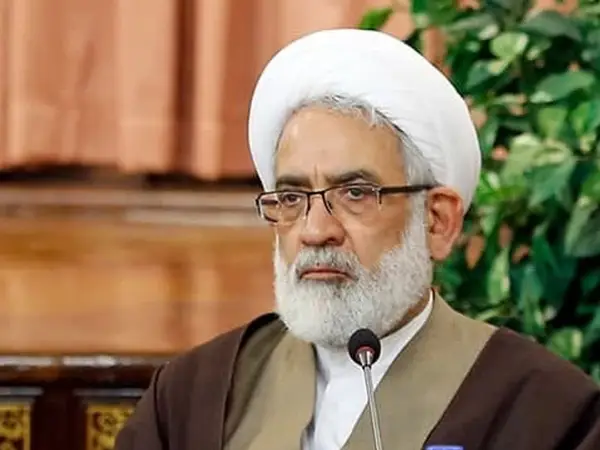Iran's Prosecutor General says although he has always supported limiting access to the Internet, he has concluded that this kind of censorship is not effective.
Mohammad Jafar Montazeri said while explaining what he called "the hybrid war in recent riots, "December 1 that Iranians use various Virtual Private Networks (VPN) to circumvent government Internet filters.
"We shut down one VPN today and immediately it is replaced by another one supplied by foreign countries." He added that "The only solution is shutting down the Internet completely, which is neither possible, nor the officials want this to happen."
Although he blamed foreign countries for providing VPNs, it is local businesses, most controlled by people close to the regime who sell the software.
Montazeri said he has been criticized by Internet users for insisting on blocking websites and application, but previous government disobeyed Supreme Leader Ali Khamenei's order about strictly controlling the Internet.
He made the comment mindless of the fact that one of President Ebrahim Raisi’s main promises in the 2021 presidential election was giving access to high-speed Internet to all Iranians in a bid to boost business.
Montazeri said that “enemies” have tried all sorts of campaigns against the Islamic Republic during the past four decades. Today, he said, they have resorted to a hybrid war.
The term has become a buzz word of Iranian officials and military commanders who have been repeating Khamenei's words probably without fully understanding it. Montazeri added that "the main perpetrators of this hybrid war are Israelis, Americans, Germans and the French."
He explained that this hybrid war consists of political cyber campaigns, fake news and diplomatic actions, adding that Khamenei had particularly warned about the cultural aspect of this war many years ago, but officials did not take his warning seriously.
A report published by proreform Fararu news website indicated that up to 10 million Iranians' livelihood may be adversely affected by government’s Internet access denials and its ban on social media platfoems. This has prevented Internet-based businesses from marketing and selling their products and services. Economists told Fararu that the limitation will have alarming repercussions for Iran's economy while the country is suffering from high inflation and recession.
Fararu added that only during the past two months while the protests were raging on, Iranians lost up to 300 thousand jobs as a result of the restrictions imposed on the Internet. Some 53 percent of Internet-related businesses have been losing some 500 million rials ($1,500) per day each. According to the trade union of computer-based businesses, Instagram has a penetration rate of 80 percent in the market with some 3.5 million jobs depending on the platform.
Economist Ehsan Soltani warned that "the officials do not want to listen to this problem. They do not realize that filtering and slowing down the Internet will add to economic problems. They keep adding to the country's problems by insisting on their mistakes."
The government has been severely restricting Internet access in general and access to popular social media platforms, such as Instagram, that play a key role in e-commerce. The government is extremely nervous that people use the Internet and social media to share news and images about protests, possibly motivating a larger segment of the population to join demonstrations.
Earlier this year, several US lawmakers and former US official Victoria Coates, who served as senior advisor to the energy secretary in the Trump administration, called on entrepreneur Elon Musk to activate Starlink satellite access for Iranians. Reports on social media during September and October said that private entities have smuggled Starlink reception equipment into Iran. But there is still no substantial indication how widespread Starlink’s use is.
